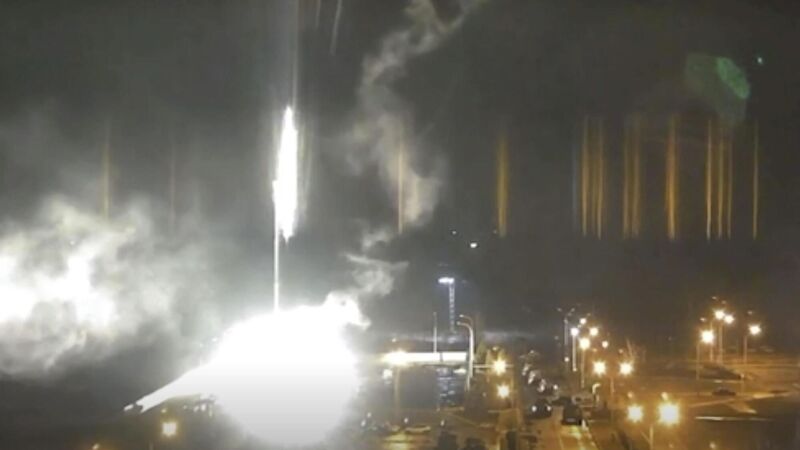'By the grace of God, the world narrowly averted catastrophe' after Russia shells nuclear plant

A video still released by management of the nuclear power plant showed bright flaring objects landing in the grounds of the Zaporizhzhia plant in Enerhodar, Ukraine on Friday. Picture: AP
Russia’s seizure of Europe’s biggest nuclear power plant prompted fears globally yesterday, with the US ambassador to the UN calling it a “dangerous new escalation” in the invasion of Ukraine.
Russian forces shelled the plant in Zaporizhzhia early on Friday morning, the attack continuing even as emergency services tried to put out the resulting fire.













